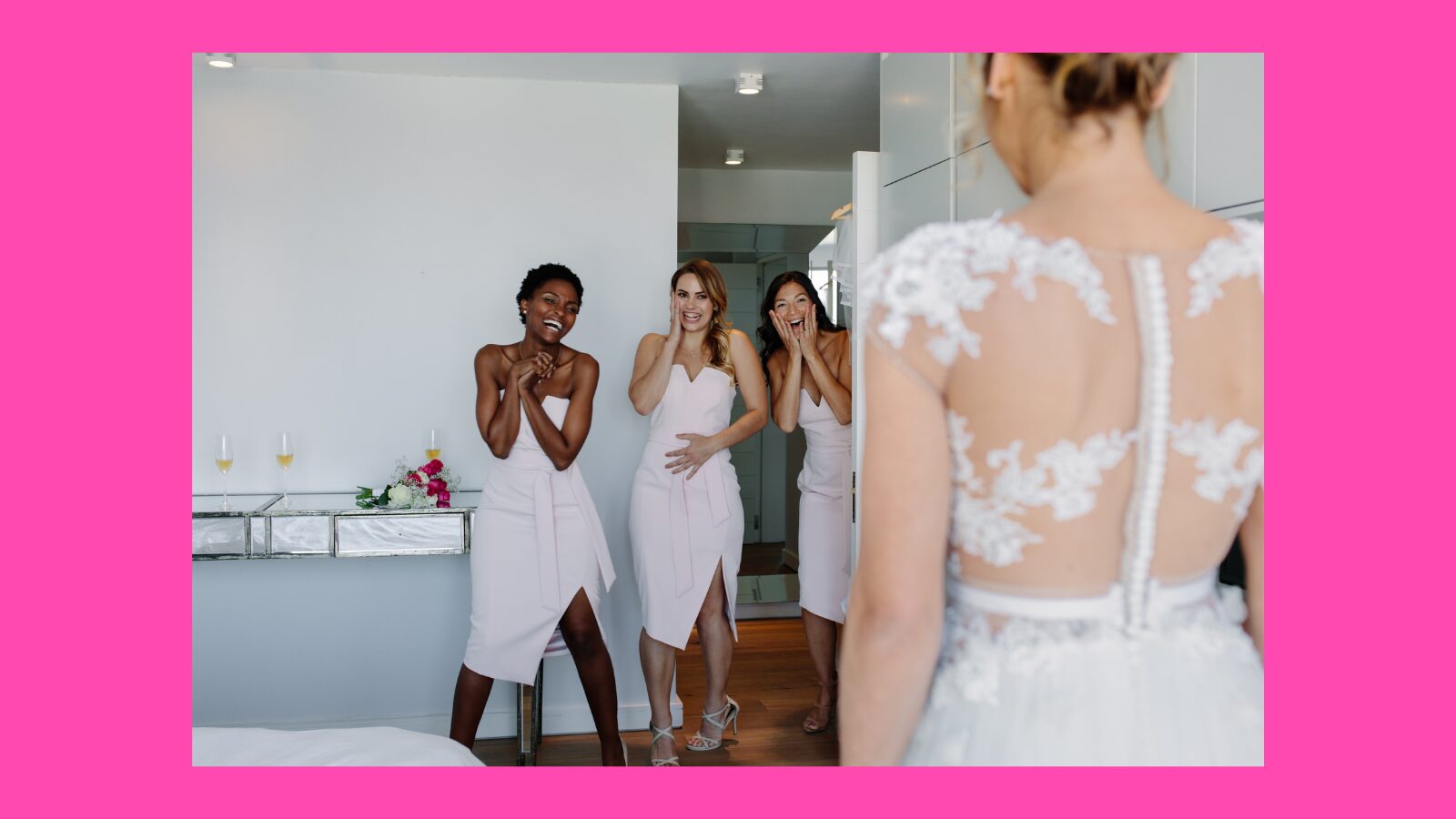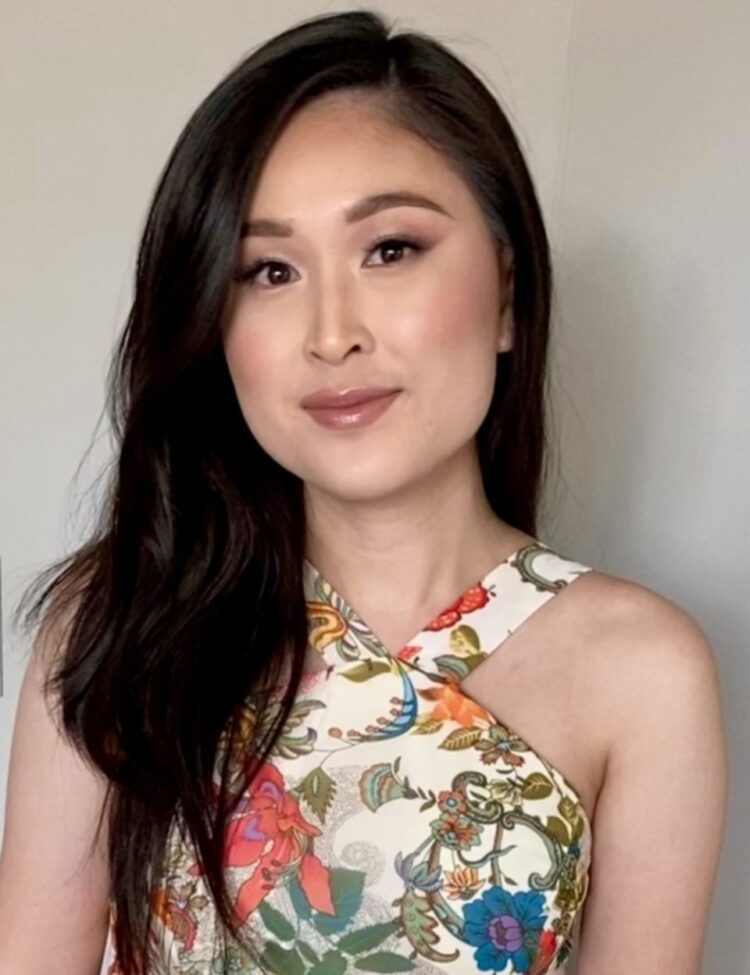Bridesmaid Energy
7 MINS to read

We’ve been taught through rom-coms and social media posts that the bride is the most important person at the wedding (followed closely by the second place position – her betrothed). The bride selects her bridesmaid based on three main factors: 1) How close are the bride and bridesmaid? 2) How well can the bridesmaid execute the bride’s vision? 3) How well can the bridesmaid adapt and mesh with the other members of the wedding party?
I’m no Katherine Heigl, but I’ve been in a few wedding parties. If money wasn’t an issue, I would’ve said yes to being in every wedding possible. Why? Because before cancer, I had severe bridesmaid energy. I define this as the sweeter relative to sorority girl energy – minus the hazing. Somehow, my bridesmaid energy left the dance floor and waltzed its way into my personal life.
When I wasn’t emailing my brides about bachelorette party ideas, I was a wildly devoted friend to so many people. Growing up as the oldest sister in an Asian American household, I was conditioned to be agreeable, meaning I had a difficult time saying no. I said yes to every brunch, every birthday, every phone call, every text message. My social calendar was an introvert’s nightmare. I didn’t really have time to reflect on my past behaviors, because there was always an event to rush off to.
Then came DCIS, a week before Christmas in 2021. She somehow penciled herself into my calendar, destroying all of the detailed timelines I had curated. I didn’t add her to the seating chart, so why the hell was she showing up uninvited?
“Anita, we don’t know if the cancer is invasive,” my surgical oncologist told me, “The two biopsies show the DCIS is estrogen and progesterone positive.”
Don’t make the doctor uncomfortable. Smile, I told myself. A good bridesmaid always smiles, especially if the bride needs a reassuring grin.
“The surgical oncology team agrees to remove the breast tissue from both sides and check the lymph nodes on the left side. We’re going to send everything to the lab and let you know the week after your surgery what the outcome is. You may need Tamoxifen. You may need radiation.”
Happy tears only, but don’t let them spill out of your eyes. No bride wants streaky makeup in their expensive photos. They’re going to frame these pictures all over their house.
“We can’t spare your nipples since there was blood discharging from the left one. For symmetry, we’re going to remove both. We have to cut across each breast. Do you understand?”
I glanced at my fiancé, who was fiercely taking notes in his notebook during my appointment. We had just gotten engaged two months prior. Poor guy. We had to test run those vows before we even made it to the altar.
For better or for worse. In sickness and in health.
I didn’t want to tell anyone. It was the end of the year. There were so many winter festivities and events planned. I wanted to wrap this diagnosis up with a shiny bow and hide it in the back of the closet. It was like the crappy gift I got stuck with during a white elephant gift party.
“I understand,” I said. I tried to muster a laugh to relieve the tension in the room. Every good bridesmaid knows not to draw too much attention to herself. My voice shook, “At least I’ll get some new boobs.”
But the reality was I loved my breasts. They looked pretty in dresses and swimsuits. They weren’t huge, but they were soft and my own.
As soon as we got home, my bridesmaid energy wore off. I canceled all of my events up to New Year’s Eve, and then cried in my bed.
Fast forwarding to the week after my double mastectomy, my surgical oncologist told me I had clear margins and didn’t need Tamoxifen or radiation. At the time, I didn’t ask her if she checked for HER2. Months later, other DCIS patients told me I should’ve asked for that.
Not fully understanding how DCIS works, I tried to chase down my worries about being triple positive by pouring myself another glass of toxic positivity.
At least I’m alive for now, I told myself, swallowing the bitter taste of survivor’s guilt. At least I still have my hair, and I’ll have saline in my expanders.
Trying to move on from my double mastectomy was like consoling a weeping bride. You want to give her enough time to get everything out of her system before the first look, but if you let her cry for too many consecutive minutes, she’s going to be pissed at how puffy her face looks and how swollen her eyes are. If she needs to, we can sneak her into the bathroom later in between cutting the cake and tossing the bouquet for a cry session, but at some point, we need to blot her face, get her on her feet and out of the bridal suite.
So, that’s exactly what I did after my double mastectomy. I channeled my bridesmaid energy and instead of helping everyone else, I focused on myself by filling my time with things I wanted to do. One day, I want to go to Italy. With my bridesmaid energy, I encouraged myself to enroll in an Italian class. I had a limited range of motion due to cording, so on the days I wasn’t in physical therapy, I cheered myself on for learning how to sew. I told myself how great it would be if I could make clothes for my ever-changing body. When I had burn marks from an allergic reaction, and my plastic surgeon told me he wanted to delay my reconstruction to December, my bridesmaid energy told me it’s okay to grieve. So I made the decision to cancel a family gathering and dance in my kitchen to millennial pop songs.
Was my recovery a linear process? Absolutely not. There were days where I had terrible, intrusive thoughts: Fraud. Stage Zero. Not real cancer. Attention Whore.
On those days, when I couldn’t rely on my bridesmaid energy to cheer me on, I resorted to an emergency kit filled with tools to get me through: a hug from my fiancé, a cuddle from my puppy, a phone call with the friends who actually stuck around, TV shows, etc.
As the days carried on, I grew a little more confident and stood firmer with each of my decisions. I didn’t always need to rely on my bridesmaid energy to let me know it was okay to think and feel how I did. I became more intentional with my time without feeling as guilty as I used to for not bending over backwards for others. Before, I was conditioned to think I wasn’t worthy of taking up space, but now, I kick off my heels and find my way to the center of the proverbial dance floor. Sometimes, in the quiet moments, I amuse myself and wonder when did my bridesmaid energy become big bridal energy? No second thoughts. No hesitation. It’s my party, and I cry if I want to.
Anita Saesing • Diagnosed at 27. DCIS, Stage 0, ER+, PR+, BRCA1 “uncertain significance.” Anita loves to travel, write stories, sew, and spend time with her loved ones. She and her fiancé live in Arizona with their loving toy poodle (who they got a week before Anita’s double mastectomy). • @anita9218

This piece has been republished with permission from WILDFIRE Magazine, the “Identity & Aftermath” issue, published originally December 17, 2022. More information available at wildfirecommunity.org
WILDFIRE Magazine is the only magazine for young women survivors and fighters of breast cancer under 45 years old. Headquartered in Santa Cruz, California, WILDFIRE is a beautiful, story-based bi-monthly magazine published on different themes relevant to young women survivors, from stage 0 to stage IV. Beautiful and ad-free! Visit wildfirecommunity.org for more info.